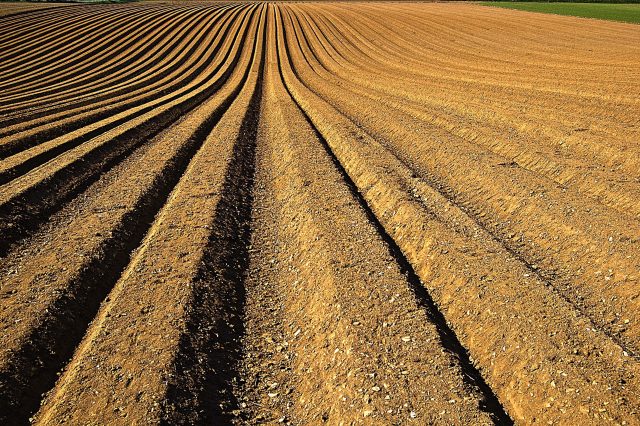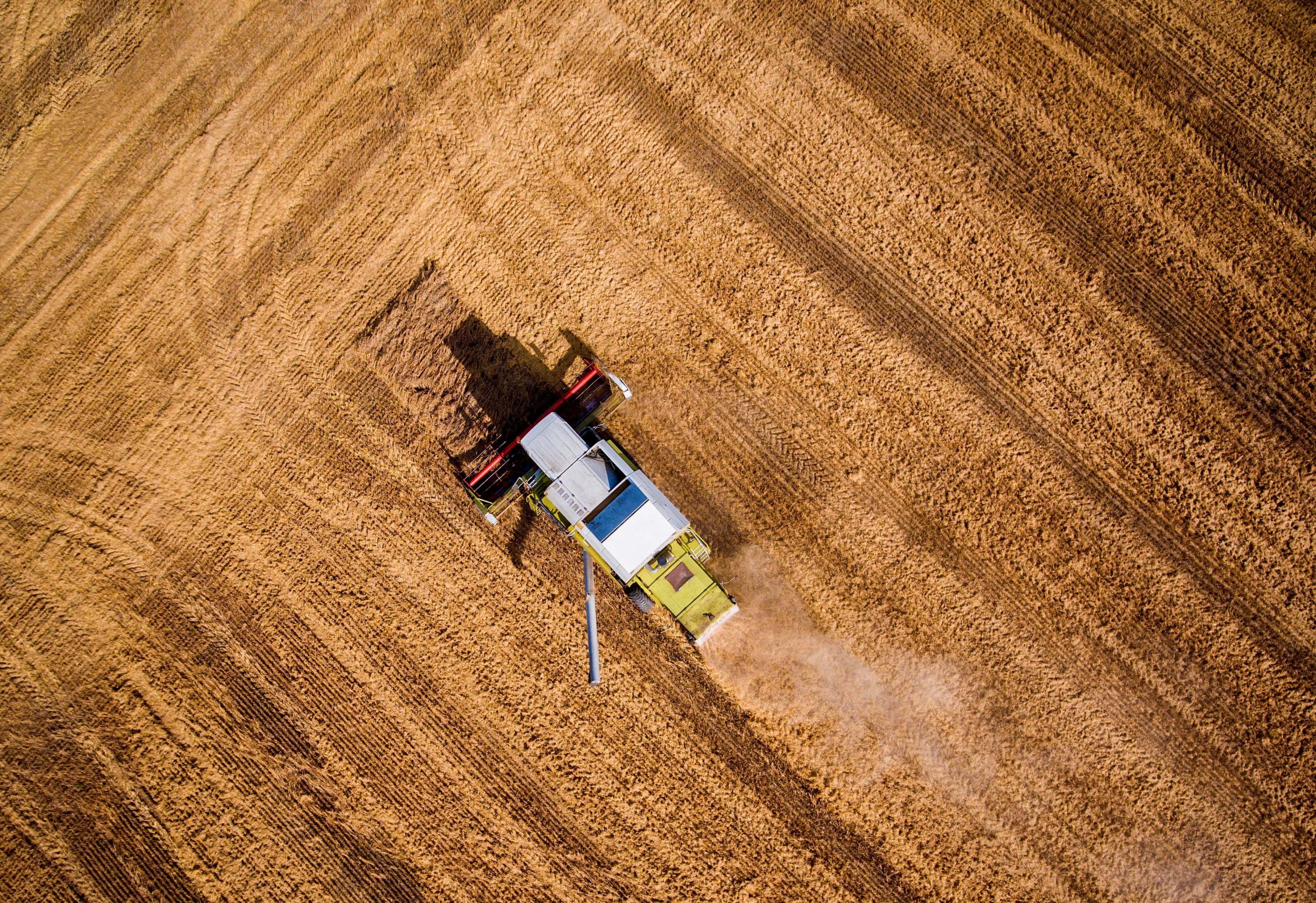
European farmers have scored a first victory in their battle with Brussels over the implementation of environmental policies. Their anger, expressed in recent protests – which have rocked the continent from west to east, some of the longest and most violent demonstrations in Europe in recent years – has prompted firstly national governments to take a series of measures and secondly Brussels to make its first concessions. Beyond the promises and even a few concrete achievements, European farmers have taught a lesson to national authorities and Brussels bureaucrats: they cannot be ignored, they are important, they play an essential role in Europe’s economy and society. And the Brussels protest episode, which came after national governments had already promised to meet some of their demands, was meant to underline the conclusion of this lesson. And their war is not over. They promise to continue the protests because what they have achieved is not enough.
European farmers have moved their tractors to Brussels
After weeks of protests in their own countries, farmers have moved their tractors to the Belgian capital, laying siege to Luxembourg Square, just a few hundred metres from where EU leaders are meeting in the EU council. Farmers from France, Belgium, Italy, Germany, the Netherlands and Spain were in Brussels to air their concerns. They want to produce quality food, but can’t under the current legislation being forced through by Brussels. They want fair prices and they want the EU to stop importing food from other continents. They don’t want unfair competition from inferior agricultural products that benefit from preferential customs treatment. No promises have reassured them. Farmers set fires, set off firecrackers and blocked the Belgian capital’s boulevards with tractors. They even tried to force their way into the European Parliament, and police had to intervene with tear gas grenades and water cannons.
EC chief publicly acknowledges importance of farmers for European economy and society
In an effort to appease the protesters, European Commission President Ursula von der Leyen assured them of “the EU’s support”, after acknowledging their importance in ensuring the continent’s food security and their significant contribution to economic growth, with production growing by 13% in 2022 and “a positive contribution” to the EU’s trade balance of 5%. Furthermore, she claimed she understands their “complex effort” at a time when they need to remain competitive in the global market while having high standards for environmental protection.
The “EU support” promised by von der Leyen did not satisfy them. They want concrete measures.
And the first steps have been taken: a one-year derogation from the law requiring them to leave 4%-7% of land fallow each year to restore soil health. Brussels has also promised that if any of Ukraine’s neighbours are found to be “flooded” with Ukrainian grain, restrictions on customs treatment will be reintroduced.

Since the beginning of last year, subsidies to farmers have been made conditional on compliance with new environmental regulations, including the obligation to leave some arable land fallow for restoration. The obligation was suspended after the outbreak of war in Ukraine to avoid market disruption, especially in the context of the invasion of Ukrainian grain onto the European market. The derogation expired at the end of last year and farmers want it extended. For a start, at least for another year.
Customs duties on Ukrainian cereals entering the EU
Farmers in Ukraine’s neighbouring states are calling for the reintroduction of tariffs on Ukrainian grain, which have been abolished since 2022. While the Commission has found that the European market has not suffered as a result of this measure, it has had to admit that in countries such as Poland, Romania, Hungary and Slovakia, the measure has had disastrous effects on the domestic agricultural sector. In fact, in the middle of last year, the four neighbouring countries – Poland, Romania, Hungary and Slovakia, plus Bulgaria – asked Brussels to ban imports of Ukrainian grain. Two of them – Poland and Hungary – have also unilaterally decided to temporarily suspend their agreements with Ukraine on these imports.
The most “generous” government in promises to farmers – the one in Paris
France will stop banning pesticides until a similar decision is taken across the EU bloc, is one of the commitments made by Prime Minister Gabriel Attal. He said it makes no sense for France to take such decisions before they are decided in Brussels. Banning the use of pesticides – regulated in France as early as 2019 – has been one of the main grievances of French farmers. Another – just as pressing – is the government’s plan to phase out diesel subsidies, one that farmers in Germany also have. But Attal’s promises on the subject were rejected as insufficient. Last but not least, Prime Minister Attal firmly promised – saying that “it is out of the question” – that France would accept the Mercosur trade agreement with Latin American countries. Some of which are also major agri-food producers, and obviously a free trade agreement on the elimination or reduction of tariffs raises concerns among European farmers, especially given the experience with Ukrainian grain. In this regard, although a political agreement between the EU and the Mercosur countries – Brazil, Argentina, Uruguay and Paraguay – has been reached as early as 2019, the free trade agreement has not yet been initialled.
German farmers unhappy with Chancellor Scholz’s promises threaten further protests
Although the government in Berlin has promised to abolish taxes on agricultural machinery, German farmers are not satisfied and believe this was a strategic move by Chancellor Olaf Scholz to win their goodwill. They want him to revise his plan to gradually increase the diesel tax in the agricultural sector until the subsidy is completely abolished in 2026. Scholz also promised to cut red tape in the sector by simplifying administrative procedures. The statements were made, strategically, at the last German Agricultural Show.
Pro-European Donald Tusk got a promise from Brussels, but the solution to the problem – Ukrainian grain – is still in doubt.
Faced with massive protests less than a month after taking office – the opposition seized the moment and, in parallel with the farmers’ protests, staged huge street demonstrations – the new government in Warsaw has had to act quickly in the face of the danger of being overthrown before it has really begun its mandate. Donald Tusk’s pro-European government has won concessions in Brussels, some of which farmers are not happy with, but at least it’s more than nothing. The EU is not giving up on extending duty-free access for agricultural products from Ukraine in June, but is forced to offer some “country-specific safeguards” and block these imports if one country’s market is flooded with these products. In addition, the EU has promised to press Ukraine to reduce some of the trade barriers it has imposed on EU products.
In an election year, the government in Bucharest is scrambling to solve farmers’ problems at the last minute.
The government in Bucharest has approved a series of measures demanded by farmers during their protests and promised more. Support of €100/hectare for farmers in the vegetable sector and the same amount per head of animal, deferment of payments on credit contracts and subsidisation of diesel for agriculture by 25% of the pump price from the 30th of June. But the issue of Ukrainian grain imports – a major demand of Romanian farmers’ organisations – is on hold. Farmers’ representatives called on the ministry to work to impose a national safeguard clause and tougher import restrictions when concessions for Ukraine are renewed.
On top of all the pressing issues, there remains the question of farmers’ obligation to implement EU regulations on livestock reduction to reduce methane pollution soon. Mark Rutte’s liberal government has rushed to implement such a plan in the Netherlands before EU legislation is adopted. The result – massive, violent protests that lasted, with interruptions, for years. What’s more, out of all these anti-government demonstrations a new party, the Farmer-Citizen Movement (BBB), was born and entered the legislature, shaking up the political scene and jeopardising the parliamentary existence of some established parties. Romania was also one of the other countries to oppose the introduction of such a measure this year, asking for a derogation from its implementation this year.



 Subscribe
Subscribe